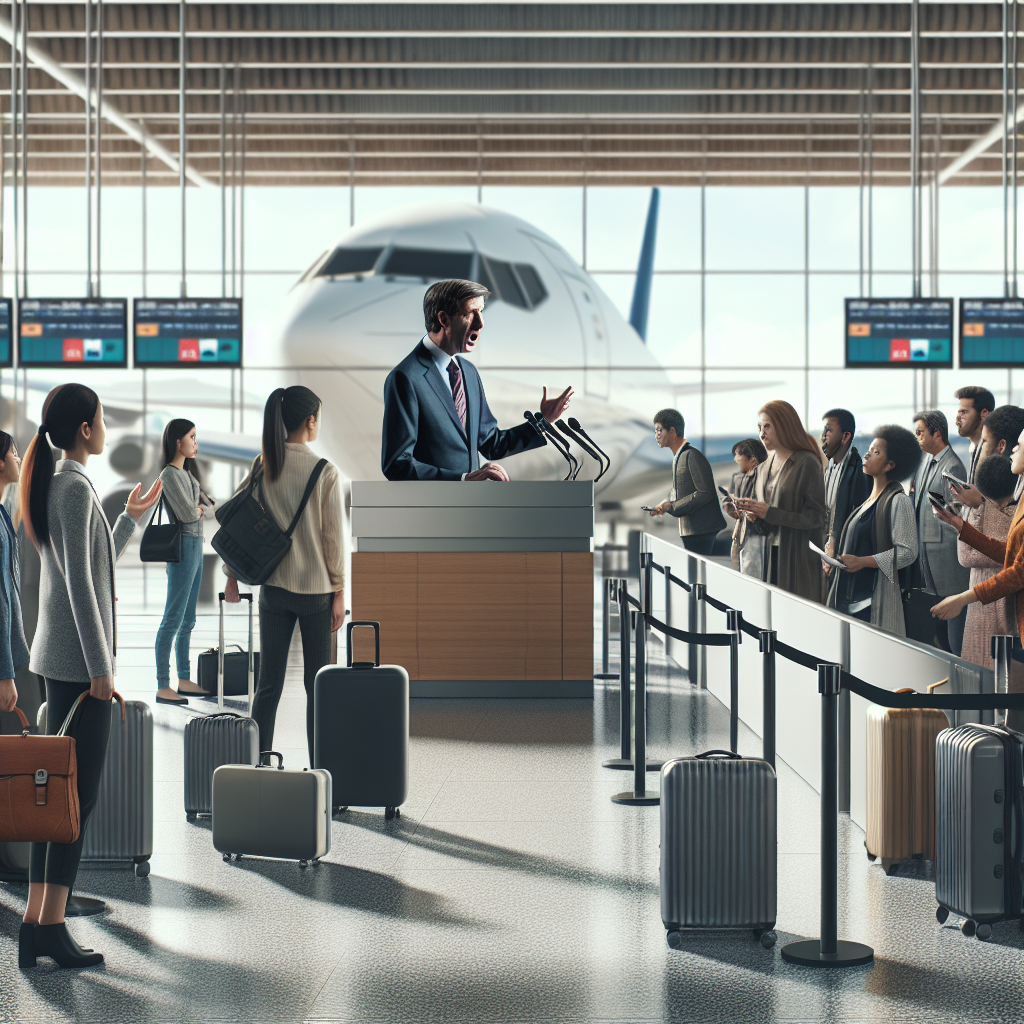
The Debate Over Airline ‘Junk Fees’ or ‘Unbundling’
Introduction
Air travel in the United States has become increasingly contentious over the years, not just in terms of security but also financial aspects. A significant point of debate has been the additional fees imposed by airlines, often referred to as “junk fees.” Recently, this issue captured the spotlight at a congressional hearing, where senators and airline executives clashed over whether these fees are merely options for consumers or borderline extortion strategies.
The Congressional Hearing
On a recent Wednesday, senators from the Senate Permanent Subcommittee on Investigations convened with executives from major U.S. airlines, including American Airlines, Frontier Airlines, Delta Air Lines, Spirit Airlines, and United Airlines. The focus was a contentious report highlighting how rising fees for services, such as checked baggage and seat selection, are steadily increasing travel costs, leaving passengers with minimal alternatives.
Senators’ Stance on Airline Fees
Senator Richard Blumenthal Takes a Stand
Leading the charge, Senator Richard Blumenthal, a Democrat from Connecticut, fiercely criticized the practice, equating the fees charged to passengers as akin to being treated like “piggy banks” to be shattered by unjustifiable costs. Senator Blumenthal argued that these fees bear no resemblance to the actual expenses that airlines incur, demanding transparency and fairness in pricing.
A Bipartisan Effort to Regulate Fees
The bipartisan effort seeks to curb these charges, termed “junk fees” by lawmakers but defended as “unbundling” by airlines. This has prompted action from the Biden administration, notably through the Department of Transportation, aiming to regulate these costs, ensuring fairness for consumers who feel trapped by such charges.
Airlines Defend ‘Unbundling’
Despite legislative pressure, airline executives have remained steadfast, defending the additional fees by explaining that they offer flexibility and choice to consumers. Andrew Nocella, chief commercial officer of United Airlines, stated that these fee structures cater to travelers prioritizing affordability by enabling them to choose only the services they desire.
Defending Consumer Choice
Nocella argued that a universal pricing model would essentially strip away low-cost alternatives from consumers. According to this viewpoint, unbundling allows passengers more control over their spending by offering a base ticket price devoid of additional, sometimes unnecessary features, which might otherwise inflate costs.
The Economic Impact of Airline Fees
According to U.S. Bureau of Transportation Statistics data, these fees are far from insignificant. Last year, baggage fees alone amassed $7 billion across 14 carriers. This represents a considerable revenue stream for airlines but also highlights the economic burden transferred to consumers.
The Rise of Airline Fees
The rise of ancillary fees in the aviation industry over the past decade has reshaped how travelers finance their journeys. The increasingly complex landscape of airline pricing has generated a market where basic services, once included in ticket fares, have become piecemeal commodities, often stretching the budget of unsuspecting travelers.
- Baggage Fees: Once part of the standard ticket price, checking a bag now incurs a separate charge.
- Seat Selection Fees: Passengers often face additional costs to select their preferred seating.
- In-flight Meals and Amenities: Previously complimentary, many airlines now offer these at a premium.
Consumers’ Perspective on Airline Fees
Many customers feel trapped by these charges, deeming them as hidden costs that inflate travel budgets unexpectedly. For some, the additional expenses of air travel have prompted them to seek alternative modes of transport, such as ground travel or other budget airlines, underscoring the critical implications of these fees on consumer behavior.
Demand for Transparency and Fairness
Increased scrutiny from travelers and lawmakers alike signals an undeniable demand for consumer protection and transparency. Passengers have become more vocal about the perceived exploitative nature of these fees, rallying for industry-wide standardization that ensures fairness in pricing.
Conclusion
The debate over airline “junk fees” versus “unbundling” showcases a broader conversation about consumer rights in the aviation industry. As lawmakers and airlines continue these discussions, it remains to be seen how regulations will evolve to address these concerns. Balancing profitability with consumer satisfaction is crucial as the world gradually inches towards a more equitable travel economy.
This ongoing dialogue signals an era where passengers are no longer passive but demand active participation and transparency in their travel experiences. Ultimately, transparent communication and fair pricing will dictate the future dynamics between travelers and the airlines they choose.
Source: https://www.nytimes.com/2024/12/04/travel/airline-fees-senate.html


Your point of view caught my eye and was very interesting. Thanks. I have a question for you. https://www.binance.info/join?ref=P9L9FQKY